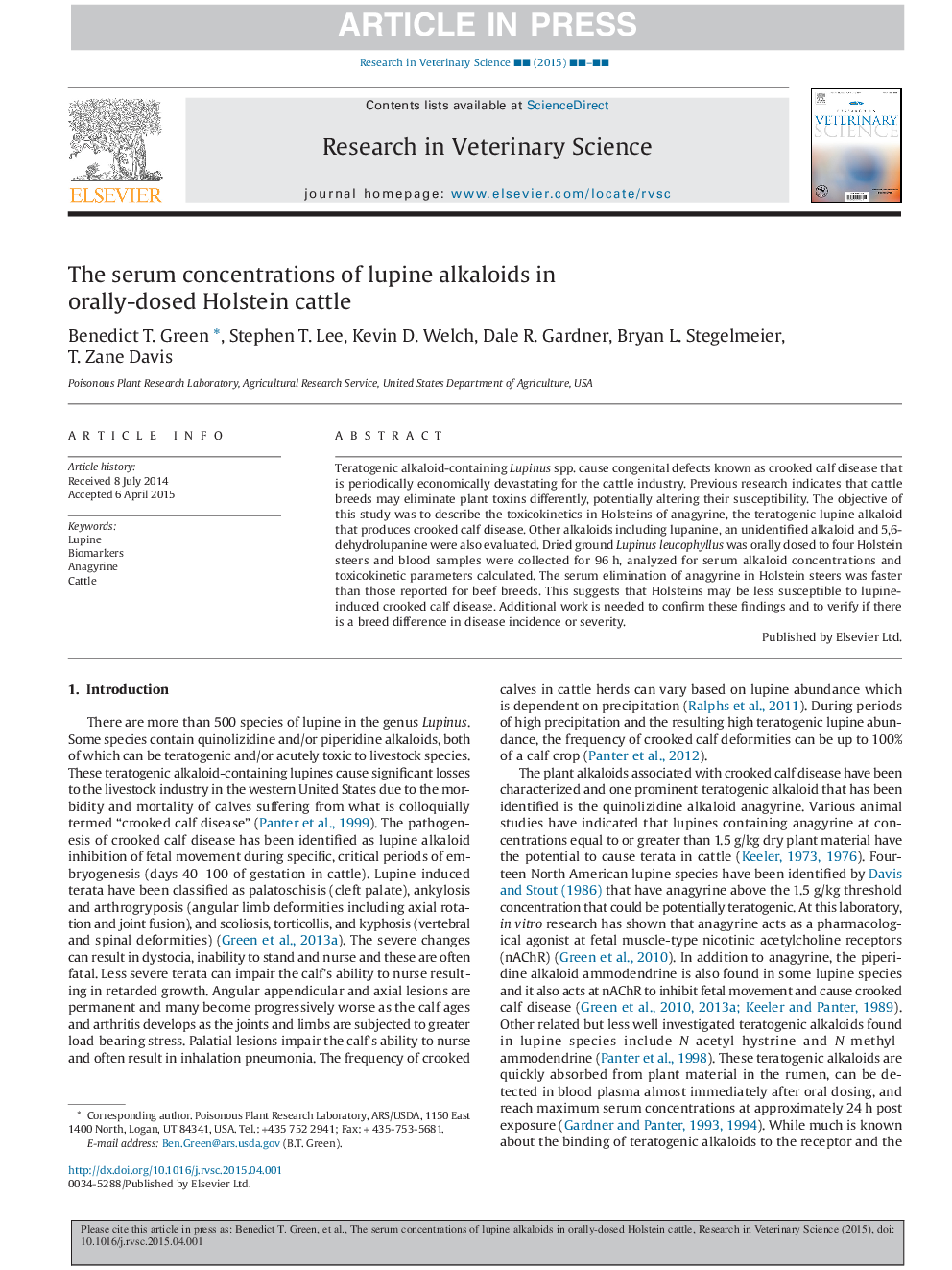| Article ID | Journal | Published Year | Pages | File Type |
|---|---|---|---|---|
| 5794701 | Research in Veterinary Science | 2015 | 6 Pages |
Abstract
Teratogenic alkaloid-containing Lupinus spp. cause congenital defects known as crooked calf disease that is periodically economically devastating for the cattle industry. Previous research indicates that cattle breeds may eliminate plant toxins differently, potentially altering their susceptibility. The objective of this study was to describe the toxicokinetics in Holsteins of anagyrine, the teratogenic lupine alkaloid that produces crooked calf disease. Other alkaloids including lupanine, an unidentified alkaloid and 5,6-dehydrolupanine were also evaluated. Dried ground Lupinus leucophyllus was orally dosed to four Holstein steers and blood samples were collected for 96âh, analyzed for serum alkaloid concentrations and toxicokinetic parameters calculated. The serum elimination of anagyrine in Holstein steers was faster than those reported for beef breeds. This suggests that Holsteins may be less susceptible to lupine-induced crooked calf disease. Additional work is needed to confirm these findings and to verify if there is a breed difference in disease incidence or severity.
Keywords
Related Topics
Life Sciences
Agricultural and Biological Sciences
Animal Science and Zoology
Authors
Benedict T. Green, Stephen T. Lee, Kevin D. Welch, Dale R. Gardner, Bryan L. Stegelmeier, T. Zane Davis,
